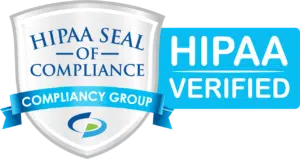Non-medical caregiving provides much-needed services to aging folks and others with physical and cognitive disabilities. As those who work in the industry know, home care fills a gap not addressed by skilled nursing services that relates to activities of daily living (ADLs). Simply put, home care agencies are tasked with providing the right caregivers for the right jobs and must match skill sets with needs, while still setting realistic expectations.
While some families and clients may think that a licensed nurse is optimal for daily care, the truth is that such a person is overqualified. In other words, she would cost too much money, and her education and experience would be underutilized. That’s where a non-medical caregiver, certified nursing assistant (CNA) or home health aide (HHA) can provide more bang for the buck.
The caregiver system works well for seniors in need of long-term care (LTC) but only if clear expectations are set by the home care agency from the outset. It’s important that aides refrain from working beyond their scope of appropriate care, and deviations can be dangerous and illegal. Miscommunications can also lead to unhappy clients and losses in business.
Here are 4 specific reasons home care agencies must set clear realistic expectations with new clients:
1. Over-Promising and Under-Delivering is “Bad Business”
It’s a bit cliché’, but the rule absolutely applies in the context of home care services. The logistics of caregiving are quite complex, and many possible events are beyond the control of agency staff and managers. Home care representatives who promise perfection set the company up for failure.
Here are the hard facts… Caregivers will sometimes call-off. Replacement aides will be necessary on occasion. Some workers may speak English as their second language, and it’s unrealistic to expect the caregiver to have a PhD in classical literature.
Other, and potentially more dangerous, forms of over-promising relate to a caregiver’s scope of care. Clients need to know up-front that their aide cannot perform medical duties like giving injections or administering medications. That level of detailed clarification empowers families to make contingency plans, as necessary.
2. Referral Sources and Clients Demand Integrity
Honesty is a valued trait in business and a moral imperative. But it’s even more critical in the context of healthcare services. If a client or family can’t trust their home care provider to tell the truth, how can they assume the company is genuinely concerned about delivering quality care? There’s no room for any deception whatsoever, including so-called “white lies.”
Home care representatives should never imply that they can bend the rules in terms of legal considerations or company compliance. For example, an agency that must bill for overtime hours should be clear about the policy from day one. It is not acceptable to imply a caregiver can work a little extra at the normal rate. Agencies that lose client trust over small lies or misrepresentations will never regain their confidence.
3. Accidents Happen When Caregivers Work Beyond Their Scope
One of the biggest challenges for home care agencies that try to play by the rules is ensuring that caregivers don’t go rogue. Aides that do so usually have good intentions, but they’re still setting the stage for disaster. Thorough caregiver training and new-hire orientation is the best way to prevent aides from veering off course in terms of scope.
Common examples of caregivers performing inappropriate duties include providing clients with medication administration or completing “full transfers.” The former is illegal in most states and is potentially hazardous to the client. The latter can result in injury to either the client or the caregiver.
If expectations are set early-on with clients and caregivers, then prohibited activities are less likely to occur. First, the client is less inclined to request the tasks. Second, the caregiver is more apt to decline if asked.
4. Legal Ramifications of Caregivers Working Beyond Scope are Devastating
One of the biggest risks for home care agencies that don’t properly set client expectations regarding caregiver duties and abilities is legal exposure. Non-medical aides are legally-prohibited from performing certain tasks that are considered “medical.” These often seem innocent to clients, so strong communication is critical.
Typically, caregivers can’t perform tasks that involve open wounds, needles or medication administration. The general idea is that they shouldn’t be doing things that require a registered nurse’s level of training and education. In addition to being illegal, caregivers who bend the rules and complete medical duties expose home care agencies to liability and multi-million-dollar lawsuits.
Obviously, most home health marketing professionals don’t like telling potential clients “No.” Home care representatives are generally in the business of finding solutions and accommodating requests. However, there are hard-set limits that relate both to laws and liability exposure.
The good news is that strong communication from the outset can set realistic expectations. Even if they initially protest caregiver limitations, they’ll ultimately appreciate the honesty.
If you’re an agency seeking home health marketing solutions, call the industry’s best marketing company for a free assessment!














